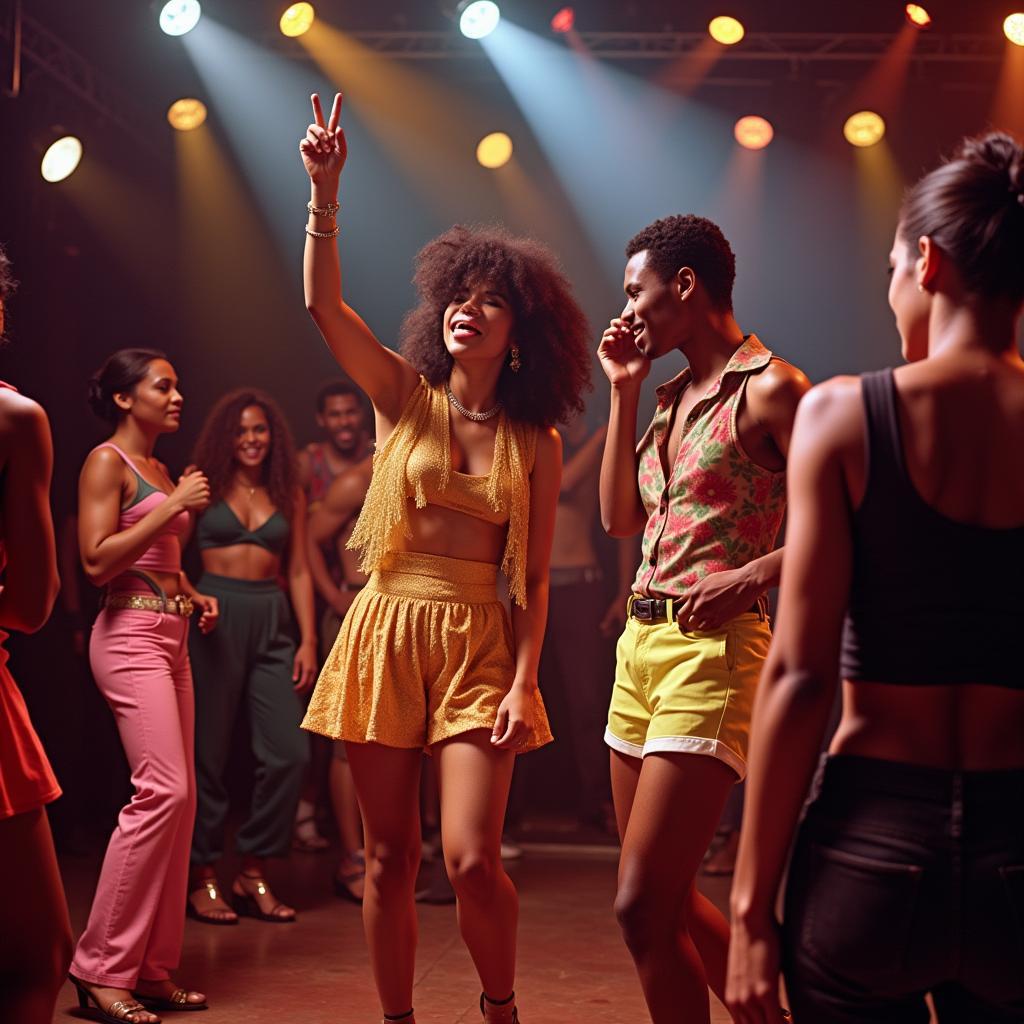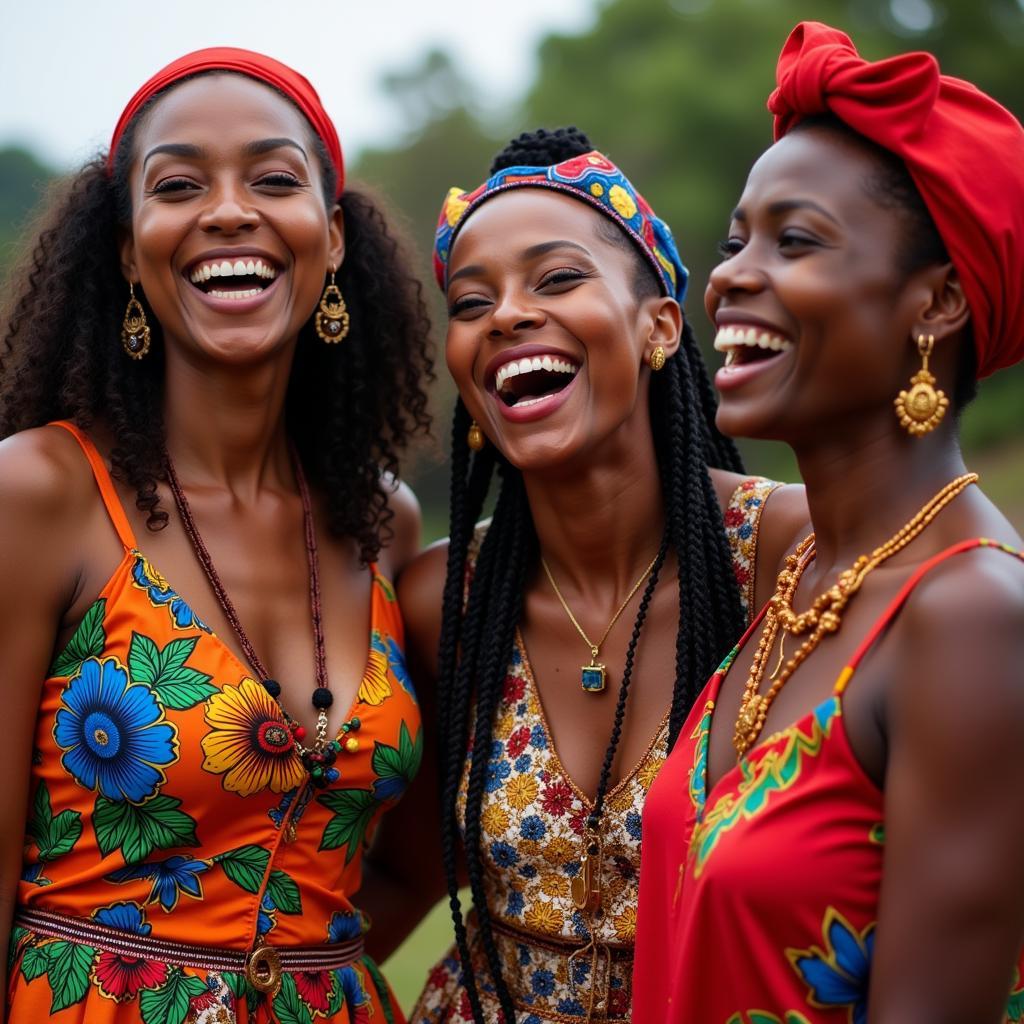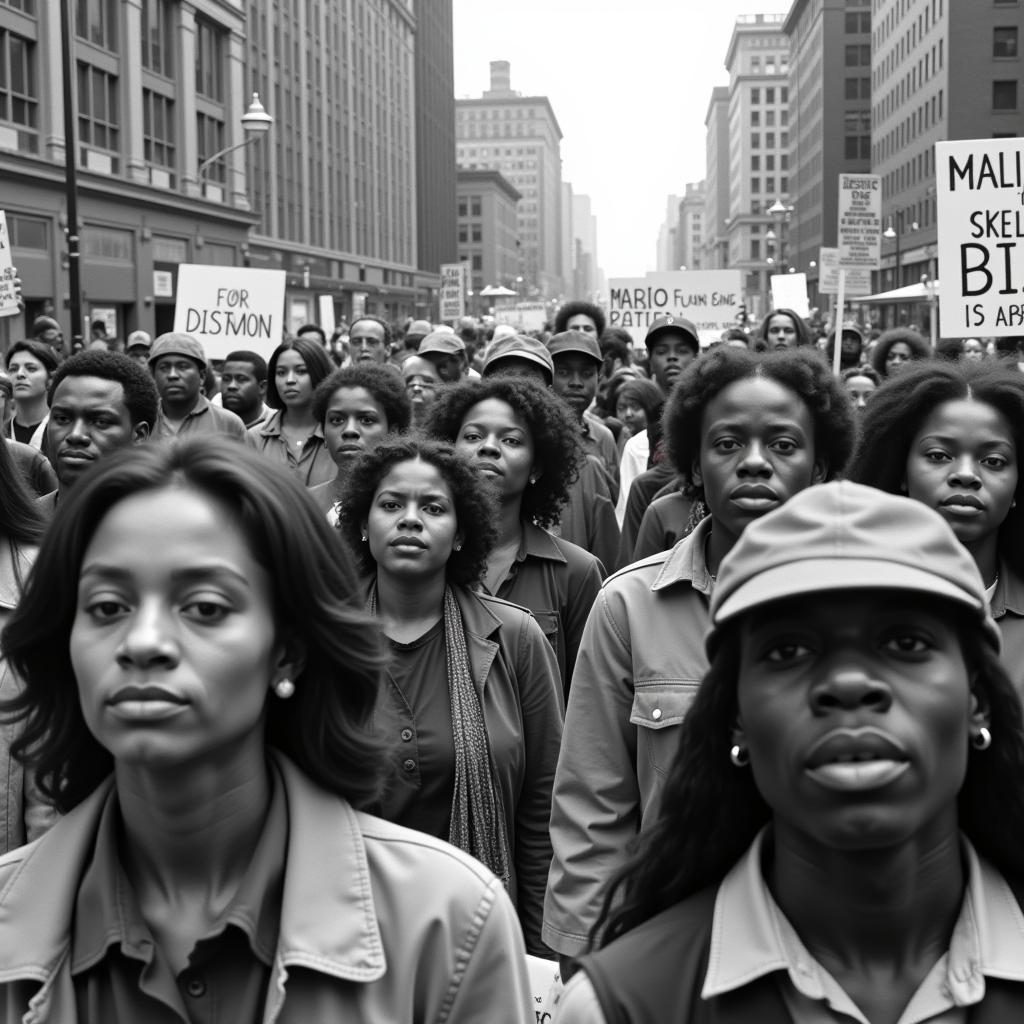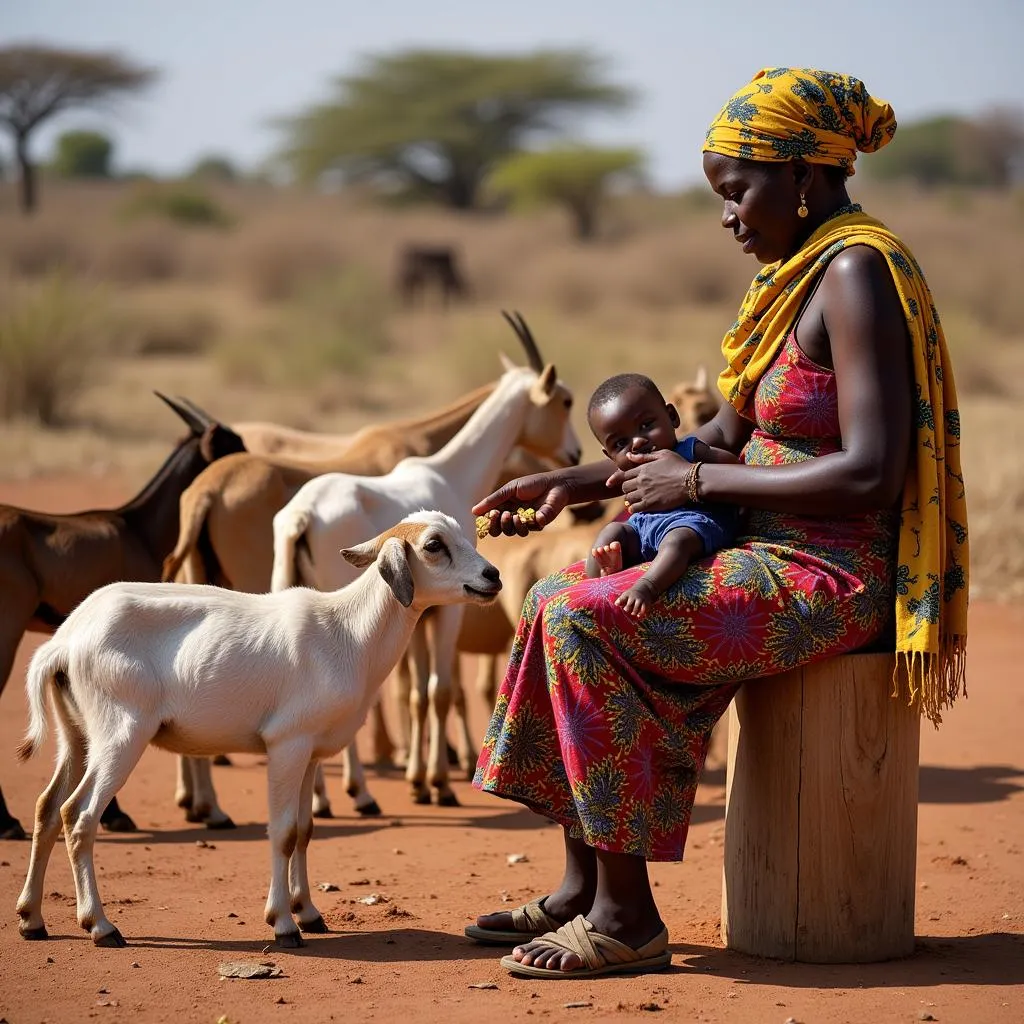Grooving to the Rhythm: Exploring African Disco Dance
African Disco Dance emerged as a vibrant cultural phenomenon in the 1970s, captivating audiences with its infectious energy and unique blend of traditional African rhythms and the electrifying sounds of disco. From the bustling dance floors of Lagos to the vibrant nightlife of Nairobi, African disco dance quickly became a symbol of liberation, joy, and cultural pride. This article delves into the fascinating world of African disco dance, exploring its origins, evolution, and lasting impact on music and culture.
 African disco dancers in the 1970s showcasing the energetic nightlife.
African disco dancers in the 1970s showcasing the energetic nightlife.
The Rise of African Disco: A Fusion of Cultures
The 1970s witnessed a global explosion of disco music, and Africa was no exception. African musicians embraced the genre, infusing it with their own distinctive musical traditions. This fusion gave birth to a unique sound that resonated deeply with audiences across the continent. Polyrhythmic drumming, soulful vocals, and intricate guitar work combined with the driving basslines and shimmering synthesizers of disco, creating an irresistible blend that had people moving to the beat. african dance names were also incorporated, adding a layer of cultural significance to the dances.
Influences and Innovations: Shaping the Sound of African Disco
Several factors contributed to the unique character of African disco. Highlife, a popular genre in West Africa, played a significant role, lending its infectious rhythms and melodic sensibilities to the emerging disco sound. Similarly, Afrobeat, pioneered by Fela Kuti, provided a powerful social and political backdrop, influencing the lyrical content and rhythmic complexity of African disco. These influences, coupled with the innovative spirit of African musicians, resulted in a diverse and dynamic soundscape that pushed the boundaries of disco.
From Dance Halls to Global Stages: The Spread of African Disco Dance
Initially, African disco dance flourished in local dance halls and nightclubs, becoming a central part of urban nightlife. As the music gained popularity, it began to spread beyond the continent, influencing musicians and dancers around the world. african dance philadelphia began to offer classes and incorporate the styles. The energetic and expressive nature of African disco dance resonated with international audiences, contributing to its global appeal.
What are the key characteristics of African disco dance?
African disco dance is characterized by its fluid movements, rhythmic precision, and emphasis on improvisation. Dancers often incorporate traditional African dance steps and gestures, adding a unique cultural flavor to the disco style. The dance is also highly participatory, encouraging interaction and connection between dancers. It’s a vibrant and celebratory expression of African culture, reflecting the joy and energy of the music.
Dr. Abena Osei, a renowned ethnomusicologist, notes, “African disco dance is not just about following steps; it’s about embodying the spirit of the music and expressing oneself through movement. It’s a powerful form of cultural communication.”
The Legacy of African Disco: A Continuing Influence
Although the initial disco craze subsided in the 1980s, African disco continues to inspire musicians and dancers today. Its influence can be heard in various contemporary music genres, from house music to Afrobeat-inspired electronic music. african dance styles names reflect its historical influence. The legacy of African disco lives on, reminding us of the power of music and dance to transcend cultural boundaries and connect people through shared experiences. african contemporary dance schools in germany also see a growing interest in this unique style.
Conclusion: Celebrating the Rhythm and Soul of African Disco Dance
African disco dance represents a vibrant chapter in the history of African music and culture. From its roots in the 1970s to its enduring influence today, African disco dance continues to captivate and inspire. Its infectious rhythms, energetic movements, and fusion of cultures make it a truly unique and celebratory dance form. african dance classes sydney demonstrate the global reach of the art form. So, next time you hear the pulsating beat of African disco, don’t hesitate to get up and groove!
FAQ
-
What are some popular African disco artists?
-
Where can I find African disco music?
-
How can I learn African disco dance?
-
What is the cultural significance of African disco dance?
-
What are some common African disco dance moves?
-
How did African disco influence other music genres?
-
What is the difference between African disco and American disco?
When you need support, please contact us: Phone Number: +255768904061, Email: kaka.mag@gmail.com or visit us at: Mbarali DC Mawindi, Kangaga, Tanzania. We have a 24/7 customer support team.


